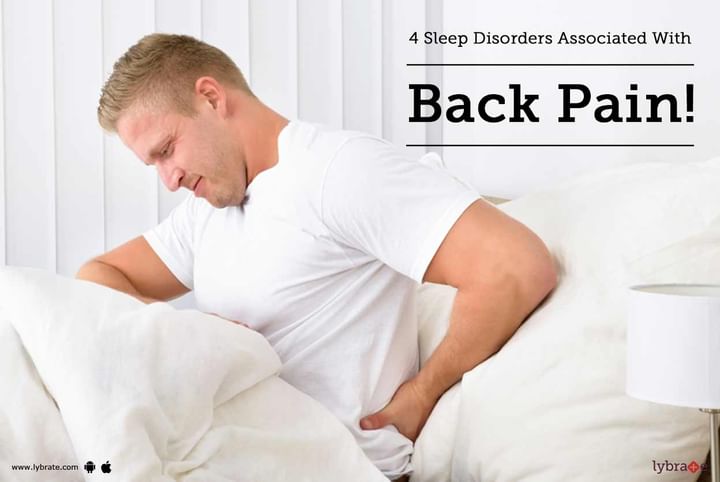4 Sleep Disorders Associated With Back Pain!
Pain related sleep disruption has affected a large number of people around the globe. Statistics has it that, in India, about 25% of the population suffers from pain-related sleep deprivation. Studies call it ‘the vicious cycle of pain and sleep’ as pain affects your ability to sleep and lack of sleep makes the pain even worse.
Back pain and arthritis are examples of some common pain-related medical disorders. People with these types of chronic pains have reported persistent sleeplessness or have had immense trouble falling asleep.
The following are the primary sleep disorders associated with chronic pain:
- Insomnia: It is a medical condition that is characterized by an inability to fall asleep no matter how physically exhausted you are. Insomnia can be acute (lasting for one night to a week) or chronic (that lasts for more than 3 weeks).
- Hypersomnia: It is a condition wherein you tend to sleep excessively; in this condition, you will have trouble being awake throughout the day or can fall asleep at any point of time.
- Sleep Apnoea: This is a sleep disorder wherein breathing pauses and resumes repeatedly. Risk factors include obesity, age and gender; it is more commonly observed in men. This condition can be chronic with symptoms such as snoring loudly or feeling very tired even after one has had a night’s sleep.
- Restless leg syndrome: It is a sleep disorder wherein you continuously move your legs while sleeping. However, this condition can also cause you to move your legs even if you aren’t sleeping.
Some of the causes of sleep disorders due to chronic pain are:
- Pain
- Worry and anxiety
- Sweating at night
- Depression and other mental disorders
Treatment
A pain and sleep disorder should be simultaneous as both the components of it, pain and sleep, are interrelated. Some of the ways people with chronic pain can still have a good night’s sleep are:
- Limiting caffeine intake
- Abstaining from alcohol and smoking, as these disrupt the sleep cycles, thus aggravating the existing pain.
- Practicing meditation and other relaxation techniques
- Pain killers or sleeping pills can be administered, but only with the doctor’s advice.
- Hot water fomentation over painful area during night, for better sleep.
In case you have a concern or query you can always consult an expert & get answers to your questions!



+1.svg)
